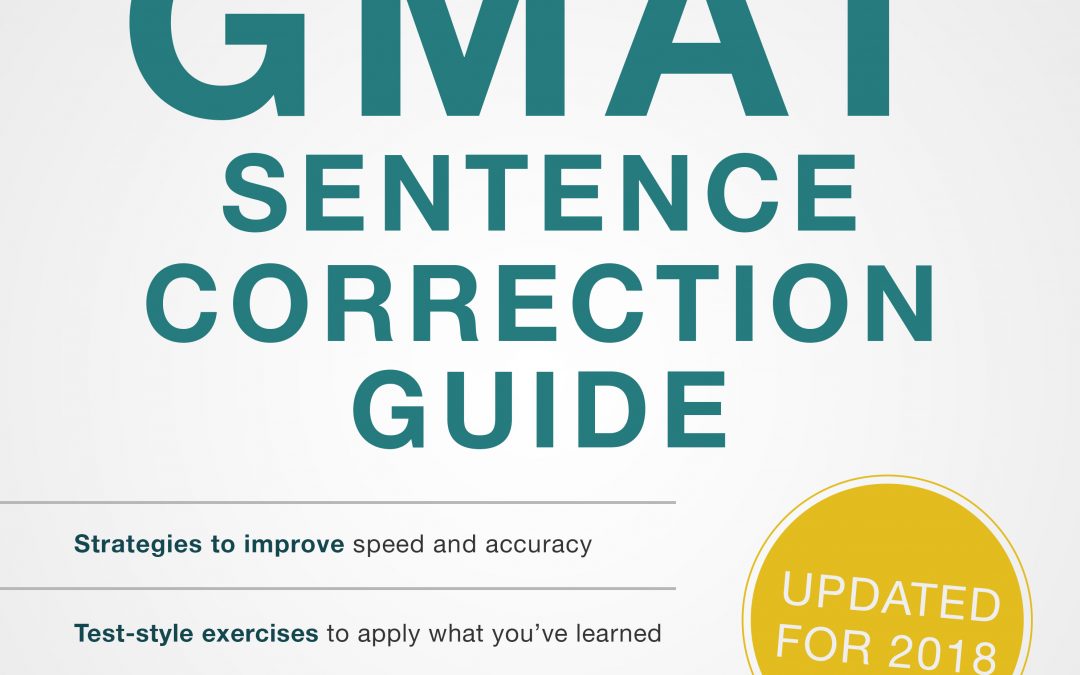
by Erica L. Meltzer | Jan 6, 2018 | ACT English/SAT Writing, Blog
Note: this exception is addressed in the 4th edition of The Ultimate Guide to SAT® Grammar and the 3rd edition of The Complete Guide to ACT® English, but it is not covered in earlier versions.
Both SAT Writing and ACT English focus test two specific aspects of the who vs. whom rule.
1) Who, not whom, should be placed before a verb.
Incorrect: Alexander Fleming was the scientist whom discovered penicillin.
Correct: Alexander Fleming was the scientist who discovered penicillin. (more…)

by Erica L. Meltzer | Jan 5, 2018 | Blog, GMAT
I’m putting up this post because I’ve received a number of queries from people who are interested my The Complete GMAT® Sentence Correction Guide but who aren’t really sure what differentiates it from other guides on the market or whether it meets their needs. So instead of continuing to respond to people on a case-by-case, I thought I’d address some of the most common questions/concerns all in one place.
While the book does by necessity cover many of the same general concepts and strategies as the other books on the market, albeit with a different organization, there are a handful of key points that bear emphasizing.
First and most importantly: the book is designed as a “bridge” to the actual exam. All of the rules covered are derived exclusively from an in-depth study of GMAC-produced questions, and each chapter ends with a list of relevant questions from the Official Guide and Official Verbal guide. In addition, specific questions are periodically referenced during in-chapter discussions. Although there are categorized Official Guide question lists circulating online, there is no other published guide that includes this type of concept-by-concept breakdown. (more…)

by Erica L. Meltzer | Jan 1, 2018 | Blog, GRE
Update to this post: I’ve now put a few sample exercises that approach GRE vocab prep from the ETS-based perspective outlined in this post. You can find them on the Quizzes page. More to come soon.
I’ve spent some time recently investigating the world of GRE® prep, and I’ve learned a few things that really surprised me. When I started reworking my old SAT® vocab material for prospective graduate students, I more or less assumed that the GRE prep world was similar to the SAT world: that is, there was a relatively cohesive network of independent tutors who shared tips, strategies, materials, etc., as well as established, well-trafficked online forums à la College Confidential where students applying to Masters and Ph.D. programs regularly congregated.
In poking around the web and talking to current/former GRE takers, however, I’ve gotten the impression that prep for this exam is a different story entirely. College seniors or recent graduates often take the exam before they know for sure whether they want to apply to grad school and, as a result, tend to have much less specific score goals. They know they should prep, and so they dutifully sign up for a class with one of the big companies but don’t end up learning much. (more…)

by Erica L. Meltzer | Dec 28, 2017 | Blog, College Admissions
I’m beginning to think that high school students should be required to take a Statistics course just to be able to navigate the numeric thicket surrounding the college admissions process. As I’ve written about recently, the percentages that colleges throw around throughout the admissions process can’t necessarily be taken at face value.
Much like the overall acceptance rates that colleges release each spring, statistics involving Early Action and Early Decision deferrals require some interpreting as well. Depending on the college, a deferral can tell a lot about an applicant’s chances in the spring — or it can tell almost nothing at all. In some cases, a deferral can also act as a warning sign about the likely fate of someone’s applications at other schools of comparable selectivity; in others, it might do just the opposite. In either of those cases, an early deferral could spur you to make some last-minute alterations to your list. (more…)

by Erica L. Meltzer | Nov 21, 2017 | Blog
The SAT redesign eliminated a lot of the traditional differences between the SAT and the ACT, and choosing between the two exams has become more challenging as a result.
But while the differences have become subtler, there are still a handful of key factors that point in the direction of one test or the other. If you’re not sure which exam to take, this quiz is for you.

by Erica L. Meltzer | Nov 13, 2017 | ACT English/SAT Writing, Blog, GMAT
“Clause” is one of those terms that gets thrown around a lot in discussion about grammar. It’s one of those words that students often hear but whose meaning they tend not to be 100% sure of.
It’s certainly possible to study for the SAT®/ACT®/GMAT® without knowing the exact definition of a clause, but understanding what clauses are and how they work can make things a whole lot easier. (more…)





